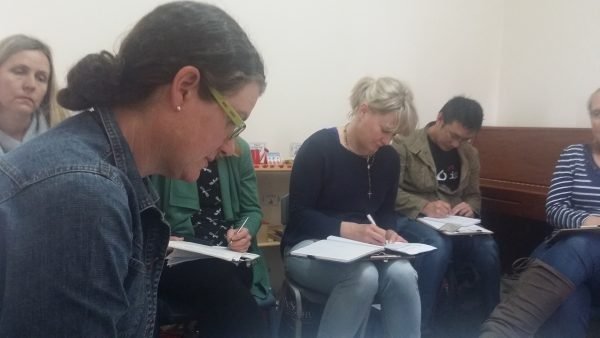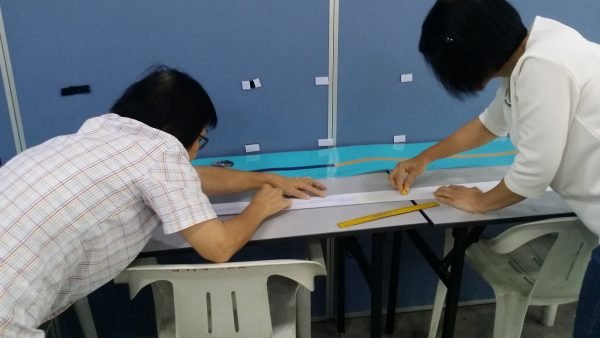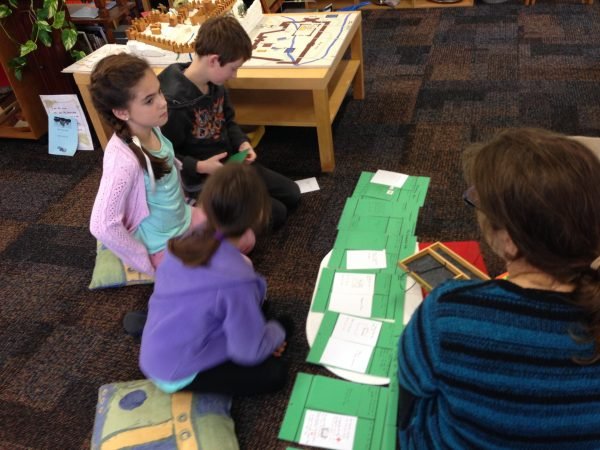To be a Catechist in the Catechesis of the Good Shepherd requires a commitment to many hours of preparation, materials making and then working with children. May people ask why, when many “programs” for children in the church utilise volunteers and follow written and prepared programs with activities and worksheets prescribed for each week of the liturgical cycle, why do we ask for so much preparation?
There can be many ways to answer that question and I do not think this article will exhaust them all.

The Catechesis of the Good Shepherd uses an approach very different to that used in our schools at this time. It is not so much an opportunity to educate our children in the faith, but rather introduce them to the person of God in a unique relationship. To act as a matchmaker between God and the child and allow the children to fall in love with Jesus the Good Shepherd. Many people have grown up being filed with information and tested to check on their recall. All of that is useful and necessary. But consider when we have fallen in love, did it happen through knowledge or was it through relationship? Adults who become Catechists sometimes find they learn about their faith as if for the first time, seeing through the eyes of children the beauty of our traditions and the words of scripture in a new way Through the formation experience we allow adults to discover for themselves the richest treasures God has to offer and we also help them to learn to step back and allow their children to make the same connections for themselves.

There is no lesson so well remembered or treasured than the one we discover for ourselves. Can you recall everything you have ever learned? What are the things you remember the best? Could it be those things where you made the connections, the discoveries for yourself? Like the person who discovered the treasure in the field and sold all they had to have it or the merchant who searched all his life for the most precious pearl, we want your relationship with Jesus to be a precious gift that you personally invested in.

During the formation, the participants will learn about an approach to learning discovered by Maria Montessori and also some Sacred History Theology. Interspersed with this some individual presentations will be given (the same as those given to the children) demonstrating the way we allow the children to continue to meditate on the small lessons of scripture, liturgy and practical life. There is time for prayer, sharing and also materials making. All of these will help to form the catechist, just as the time in the atrium for children helps to build the child in their personal relationship with God.

When we work with children in the Catechesis of the Good Shepherd, we do not follow a program. We do not have a curriculum that must be covered in a set amount of time. Some children will never work with or be given all of the presentations. We observe and follow the needs of each individual child, offering to them as gift various presentations as they grow in their understanding and relationship of God and as they grow as people in our community. As their abilities increase, they gain new skills which we provide opportunities for them to master, to help them do it by themselves. As one may imagine, it can be very difficult for some people to let go and let God be the teacher, with no measurable outcome. Sometimes we are blessed with glimpses of the work of the Holy Spirit in the response of the children, through their personal prayer and artwork. For the most part we are useless servants of God and the child and perhaps one day we may see the fruits of our labour.